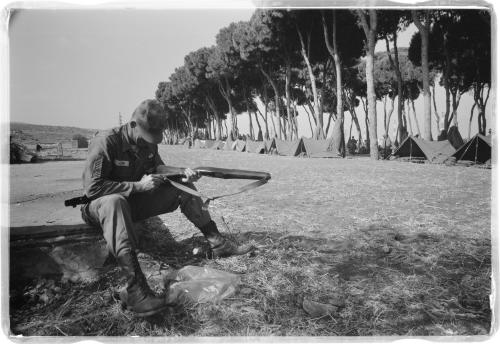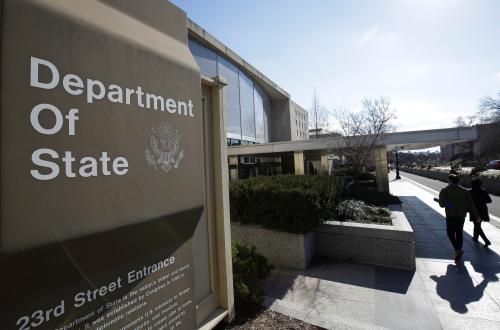This piece is part of a series remembering the life, career, and legacy of Helmut (Hal) Sonnenfeldt — a member of the National Security Council, counselor at the Department of State, scholar at the Johns Hopkins School of Advanced International Studies (SAIS), and Brookings expert.
How do you cross paths with exceptional people in your life? Usually when you least expect it, at a meeting, an introduction, at a conference.
Since I was chairman of the House Armed Service Personnel and Oversight Committee in 1987 when we were dealing with the dismantling of the Warsaw Pact and the changes in the Soviet Union, I was aware of Hal Sonnenfeldt — but I only really knew him by reputation, not personally. In 1994, I was asked by the Chief of Naval Operations (CNO), Admiral Michael Boorda, to become a member of the CNO’s Executive Panel. Being aware of the work the CNO’s Executive Panel did, I was pleased and interested in being a part. I realized after attending my first panel meeting that the outstanding membership included Hal Sonnenfeldt, former director of the Department of Defense’s Office of Net Assessment Andrew Marshall, and former U.S. Representative from Delaware Thomas Evans. Names that rang nationally with respect and brilliance.
After that first meeting, I called Mike Boorda and said: “What am I doing on the panel? Do you know the outstanding people who are members?” He said: “Yes, and I appointed you to keep them grounded. They are all forward thinkers, future leaders, and representative of different views. The panel works to come up with a consensus.”
As I joined more meetings, different studies we worked with gave us many challenges. Hal Sonnenfeldt took me under his wing and gave me great guidance. I continued to ask my questions, I continued to bring us back to reality. Hal was always there to challenge the direction of the study, to guide us in taking the Navy and the country in the best direction. With the loss of Hal, Brookings has a large void, and so does the nation.





Commentary
Hal Sonnenfeldt: A view from Congress
October 17, 2019